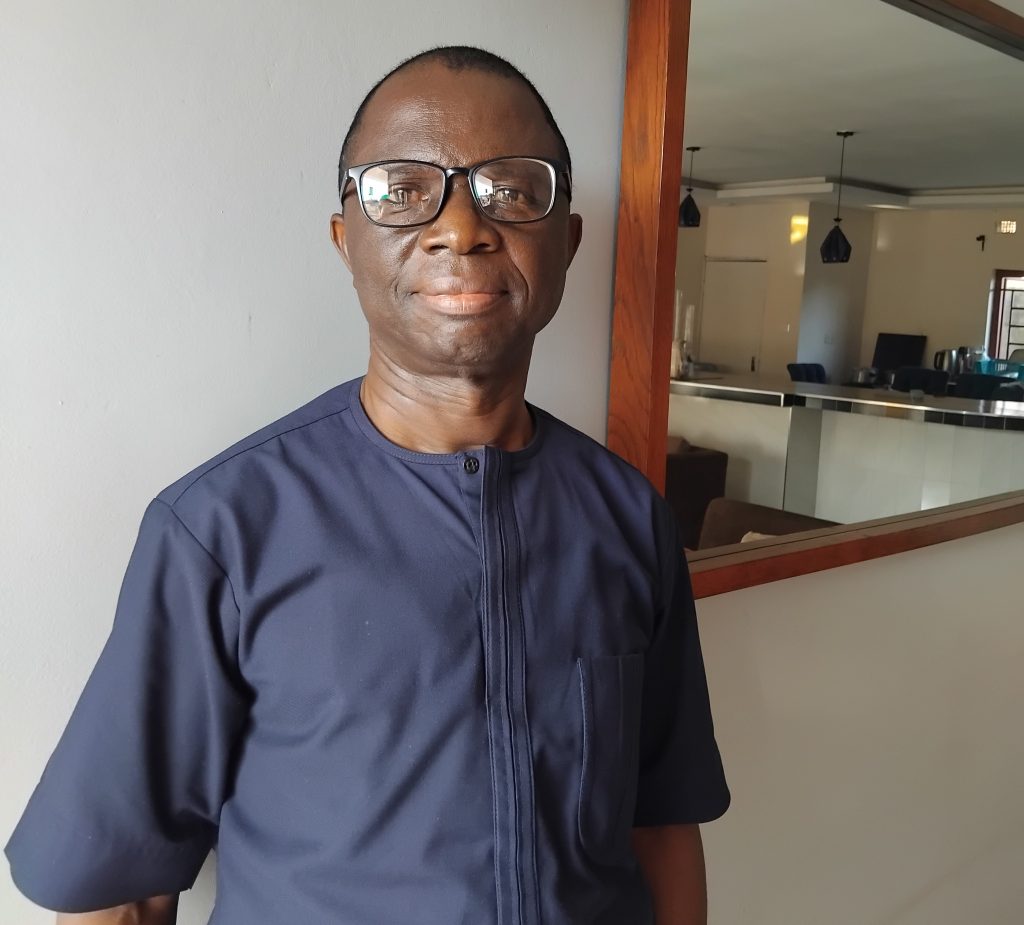One January morning in 2023, while under the shower, I felt a lump in my right breast. My heartbeat skipped. Though my general knowledge told me that breast cancer was rare in men, I could not help fearing the worst. Before I knew it, I had stormed out of the shower for my phone to browse the Internet. Part of me concluded that the bump in my breast could just be an innocent lump or cyst and not necessarily cancer. I rubbed the lump, no pain.
At that moment, I decided not to tell my wife, Mtemwa, in the false belief that the lump would disappear in no time.
Three months later, she found out on her own. Shocked and without much thought, I told her that I was not aware of the lump. It was an embarrassing moment. She demanded that we seek medical attention immediately.
After forth and back and two months later, the lump started to itch. One night, the itch was so severe that I could hardly sleep. In the morning, I did something I had not thought of previously. I checked in the mirror and did not like what I saw. The skin around the area was reddish, and the nipple was no longer the same. This was the turning point. I decided to seek help.
The following day, my wife and I were on our way to the hospital. At a glance, the doctor told me that she suspected cancer. She recommended that I see a surgeon immediately. The surgeon told her that he would only be available a week later. The one-week wait was like forever. I feared for the worst. On our way home, we agreed that we would only disclose things to family after seeing the surgeon.
On the appointed day we went to the hospital. After some initial clinical tests, the surgeon concluded that it was breast cancer. He then said something that sent shivers down my spine. He needed to determine whether the cancer had spread to other parts of the body. He regretted that I had not sought medical help much earlier. Fear gripped me. After some anxious moments of wait, the surgeon said there was no sign that the cancer had spread and that it would need surgery to remove the cancerous lump. For this, he recommended that I see another surgeon.
Dr. Sihem Dhifaoui confirmed it was breast cancer. She outlined what tests needed to be done quickly, leading to surgery. She was of the view that surgery would be successful, and I would be fine. She was so assuring that for the first time, I felt relieved. Fear melted into hope. After the clinic, we decided that it was now time to inform the family of my medical condition. I spoke to everyone to avoid mis-presentation and to clarify issues. Indeed, the issues were many, even to the extent that I should not do the biopsy test. It was believed that biopsy expedited the spread of cancer.
In brief, I had presented to the clinic with a right non-tender breast lump. A clinical diagnosis of breast cancer was made, the trucut biopsy was done, and the histopathology revealed an invasive ductal carcinoma NOS grade 3. A triphasic CT scan, the chest, abdomen, and pelvis was done and showed no metastasis (spread of cancer to other organs).
Dr. Sihem insisted I undergo surgery without further delay. I underwent surgery (modified radical mastectomy, plus axillary lymph node dissection Level 2). I was discharged the following day. After recovery, I was referred to the Cancer Diseases Hospital to start adjuvant chemotherapy.
On 12th December 2023, I was seen by the oncologist Dr. Lunkamba. He recommended that I undergo additional tests to rule out any chance that the cancer had spread. This included the liver, heart (echo), and the remaining breast (mammogram).
It was another two weeks of anxious wait. Again, the results cleared me. Dr. Lunkamba then placed me on a treatment plan that included:
- a) 8 cycles of chemotherapy consisting of 4 sessions of a combination of acriamycin and cyclophosphamide drugs. The last 4 were a combination of trastuzumab and paclitaxel. The cycles were at intervals of 21 days.
- b) one-year treatment on trastuzumab drug only, at 21 days intervals to be followed by an oral drug for 10 years; and
- c) radiotherapy.
On 21st December, I began my chemotherapy sessions preceded by counseling. All the other 40 patients were female. Somewhat giving credence to the perception that breast cancer only affected women. The other patients thought my wife was the patient, including the medical staff! On my fourth visit, another male patient joined us. I shared my journey with him. He expressed gratitude, saying I had eased his anxiety. On 6th June, I completed chemotherapy. Post-chemo tests (CT-Scan and Ultrasound) placed me in the clear.
Currently, I am on Trastuzumab treatment until June 2025. In the meantime, I await to undergo radiotherapy treatment in India as facilities are not available in Zambia at the moment.
Other than the gifted hands of the doctors and support staff, my family system has been key on this journey.
On Sunday, 28th April this year, I stumbled upon the Male Breast Cancer Global Alliance website. I reached out to them, and the Founder/President Cheri Ambrose was kind enough to respond. Our interaction over the months has been uplifting!
In conclusion, breast cancer is breast cancer. If you have breasts, you are at risk, female or male. Period!
Further, over the months, I have come to appreciate that seeking medical help early is cardinal.

